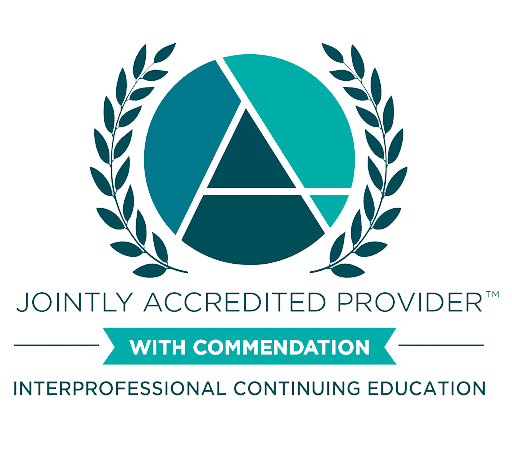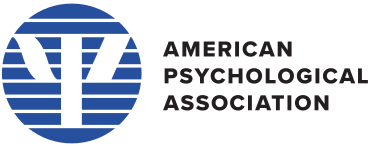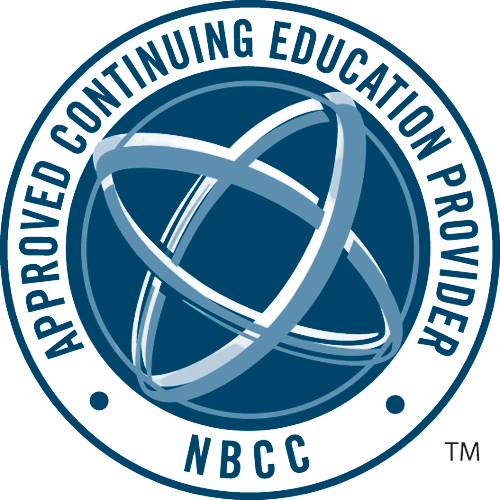A Resource for Healthcare and Social Services Professionals
November 22, 2024
12:00 pm–1:30 pm ET
The holiday season can be challenging and stressful when trying to navigate the pressures associated with this time of the year. For many, alcohol consumption significantly increases between Thanksgiving and New Years for a variety of reasons, including family dynamics, increased social gatherings, holiday traditions, and increased feelings of loneliness, sadness, or isolation. This training will review strategies on how to avoid or reduce alcohol consumption, as well as discuss techniques for how to talk about one’s alcohol use during a particularly stressful time of year.
Via Zoom
The holiday season can be challenging and stressful when trying to navigate the pressures associated with this time of the year. For many, alcohol consumption significantly increases between Thanksgiving and New Years for a variety of reasons, including family dynamics, increased social gatherings, holiday traditions, and increased feelings of loneliness, sadness, or isolation. This training will review strategies on how to avoid or reduce alcohol consumption, as well as discuss techniques for how to talk about one’s alcohol use during a particularly stressful time of year.
Providers, nurses, social workers, other clinical staff, and non-clinicians.
Judith is a clinical nurse educator for or Boston Medical Center's (BMC) Grayken Center for Addiction Training and Technical Assistance and a board certified Psychiatric-Mental Health Nurse Practitioner who has a private practice and works at an inpatient substance use disorder treatment facility. Judith earned her master’s in nursing from Regis College and is certified as a Certified Addiction Registered Nurse – Advanced Practice (CARN-AP) through the Addictions Nursing Certification Board.
Amy Fitzpatrick, MD (she/her)Amy Fitzpatrick is an assistant professor of Medicine at Boston University School of Medicine and a primary care physician in the Women's Health Group at Boston Medical Center. She also conducts clinical research in addiction medicine and serves as an expert consultant for MCSTAP, the Massachusetts Consultation Service for the Treatment of Addiction and Pain. In her role at Boston Medical Center, she works in the Office-Based Addiction Treatment (OBAT) clinic and attends the Inpatient Addiction Consult Service for four weeks per year. Dr. Fitzpatrick's other interests include medical student and resident education, and she is board-certified in internal medicine and addiction medicine.
Andrea Jodat, DNP, FNP-BC, CARN-AP (she/her)Andrea is a clinical nurse educator for Boston Medical Center's (BMC) Grayken Center for Addiction Training and Technical Assistance program, a Family Nurse Practitioner in General Internal Medicine at BMC, and an Assistant Professor of Medicine at the Boston University Chobanian & Avedisian School of Medicine. Andrea earned a Doctor of Nursing Practice (DNP) from the Massachusetts General Hospital Institute of Health Professions and is certified as a Certified Addiction Registered Nurse - Advanced Practice (CARN-AP) through the Addictions Nursing Certification Board.
At the end of this training, participants will have the knowledge necessary to:
Boston Medical Center Grayken Center for Addiction TTA, Department of Public Health, Bureau of Substance Addiction Services (DPH/BSAS)
Funding for out of state attendees is provided by the Opioid Response Network (ORN).
Funding for this initiative was made possible (in part) by grant no. 1H79TI085588-02 from SAMHSA. The views expressed in written conference materials or publications and by speakers and moderators do not necessarily reflect the official policies of the Department of Health and Human Services; nor does mention of trade names, commercial practices, or organizations imply endorsement by the U.S. Government.
REQUIREMENTS for credit
Please note this policy is strictly enforced for accreditation purposes. Participants will forfeit collection of credit and certificates of completion if more than 10 minutes of the training is missed.
Joint Accreditation Statement for CME, Nursing, Social Work and Psychology
 In support of improving patient care, Boston University Chobanian & Avedisian School of Medicine is jointly accredited by the Accreditation Council for Continuing Medical Education (ACCME), the Accreditation Council for Pharmacy Education (ACPE), and the American Nurses Credentialing Center (ANCC), to provide continuing education for the healthcare team.
In support of improving patient care, Boston University Chobanian & Avedisian School of Medicine is jointly accredited by the Accreditation Council for Continuing Medical Education (ACCME), the Accreditation Council for Pharmacy Education (ACPE), and the American Nurses Credentialing Center (ANCC), to provide continuing education for the healthcare team.
CME
Boston University Chobanian & Avedisian School of Medicine designates this live activity for a maximum of 1.50 AMA PRA Category 1 Credit(s)™. Physicians should claim only the credit commensurate with the extent of their participation in the activity.
Nurses
Nursing Contact Hours: 1.50 contact hours, of which 0.00 are eligible for pharmacology credit.
Social Workers
As a Jointly Accredited Organization, Boston University Chobanian & Avedisian School of Medicine is approved to offer social work continuing education by the Association of Social Work Boards (ASWB) Approved Continuing Education (ACE) program. Organizations, not individual courses, are approved under this program. Regulatory boards are the final authority on courses accepted for continuing education credit. Social workers completing this course receive 1.50 clinical continuing education credits.
American Psychological Association (APA) CE Designation Statement
 Continuing Education (CE) credits for psychologists are provided through the co-sponsorship of the American Psychological Association (APA) Office of Continuing Education in Psychology (CEP). The APA CEP Office maintains responsibility for the content of the programs.
Continuing Education (CE) credits for psychologists are provided through the co-sponsorship of the American Psychological Association (APA) Office of Continuing Education in Psychology (CEP). The APA CEP Office maintains responsibility for the content of the programs.
New York State Psychology Credit
Boston University Chobanian & Avedisian School of Medicine Barry M. Manuel Center for Continuing Education is recognized by the New York State Education Department’s State Board for Psychology as an approved provider of continuing education for licensed psychologists #PSY-0181 Note: NYS psychologists must attend all sessions for credit. Partial credit is not allowed.
The Department’s approval of a provider of continuing education does not constitute the Department’s endorsement of the content, positions or practices that may be addressed in any specific continuing education course offered by the approved provider.
Licensed Mental Health Counselors (LMHC)
 BMC Grayken Center of Addiction TTA has been approved by NBCC as an Approved Continuing Education Provider, ACEP No. 7188. Programs that do not qualify for NBCC credit are clearly identified. BMC Grayken Center of Addiction TTA is solely responsible for all aspects of the programs. For this program, 1.50 contact hours will be offered to participants who attend the training and complete the evaluation.
BMC Grayken Center of Addiction TTA has been approved by NBCC as an Approved Continuing Education Provider, ACEP No. 7188. Programs that do not qualify for NBCC credit are clearly identified. BMC Grayken Center of Addiction TTA is solely responsible for all aspects of the programs. For this program, 1.50 contact hours will be offered to participants who attend the training and complete the evaluation.
LADC/CADC & Recovery Coach
Boston Medical Center Grayken Center for Addiction Training and Technical Assistance is approved by the Massachusetts Department of Public Health, Bureau of Substance Addiction Services (DPH/BSAS) to award LADC/CADC and Recovery Coaches who complete this trainings 1.50 continuing education credits.
Community Health Worker
Boston Medical Center Grayken Center for Addiction Training and Technical Assistance is approved by the Massachusetts Department of Public Health, Board of Community Health Workers to award community health workers who complete this training 1.50 continuing education credits.
Disclaimer
Continuing education (CE) requirements vary by license and jurisdiction. When requesting continuing education credits, please ensure you are following the rules and regulations determined by the board regulating your license. Boston Medical Center Grayken Center for Addiction TTA does not oversee adherence to licensing requirements and regulations.
THIS CONTINUING EDUCATION PROGRAM IS INTENDED SOLELY FOR EDUCATIONAL PURPOSES FOR QUALIFIED HEALTHCARE PROFESSIONALS. IN NO EVENT SHALL BOSTON UNIVERSITY BE LIABLE FOR ANY DECISION MADE OR ACTION TAKEN IN RELIANCE ON THE INFORMATION CONTAINED IN THE PROGRAM. IN NO EVENT SHOULD THE INFORMATION CONTAINED IN THE PROGRAM BE USED AS A SUBSTITUTE FOR PROFESSIONAL CARE. NO PHYSICIAN-PATIENT RELATIONSHIP IS BEING ESTABLISHED. IN NO EVENT SHOULD INFORMATION IN THE MATERIALS REGARDING LAWS, REGULATIONS, OR LEGAL LIABILITY BE CONSIDERED LEGAL ADVICE OR USED AS A SUBSTITUTE FOR CONSULTING WITH AN ATTORNEY.